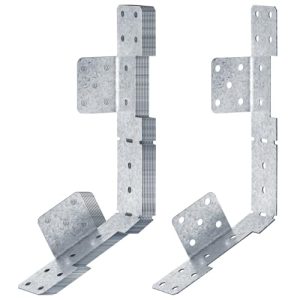Are you worried about whether your Social Security check will be taken if you move into a nursing home? You’re not alone.
Many people wonder how their benefits will be affected and what happens to their money once they need long-term care. Understanding this can save you from unexpected financial stress and help you plan better for the future. Keep reading to find out exactly what happens to your Social Security income when you enter a nursing home and how you can protect your hard-earned benefits.
How Social Security Benefits Work
Understanding how Social Security benefits work is essential, especially if you or a loved one might enter a nursing home. These benefits often serve as a critical source of income during retirement or disability. Knowing the types of benefits available and the eligibility rules can help you plan better and protect your finances.
Types Of Social Security Benefits
Social Security offers several types of benefits tailored to different needs. The most common include:
- Retirement Benefits:Paid to those who have worked and paid into Social Security, starting as early as age 62.
- Disability Benefits:For individuals who cannot work due to a qualifying disability.
- Survivor Benefits:Given to family members when a worker passes away.
- Supplemental Security Income (SSI):Needs-based benefits for elderly or disabled individuals with limited income and resources.
Each type serves a different purpose and has unique rules about how much you can receive and when.
Eligibility Criteria
Qualifying for Social Security benefits depends on several factors, including your work history and age. Generally, you need to have earned enough “credits” through paying Social Security taxes during your working years.
For retirement benefits, you usually need at least 40 credits, which equals about 10 years of work. Disability benefits require proof of a medical condition that meets Social Security’s strict definition.
Have you checked if your work record meets these requirements? It’s worth reviewing your Social Security statement online to avoid surprises when applying for benefits.

Credit: www.facebook.com
Nursing Home Costs Explained
Nursing home costs can be high and confusing for many families. Understanding these expenses helps plan better for care needs. Costs vary depending on location, type of care, and facility quality.
Knowing how nursing homes charge and how payments work clarifies what happens to your Social Security benefits. This knowledge helps make informed financial decisions.
Average Expenses
The average cost of nursing home care is around $8,000 per month. Private rooms are more expensive than shared rooms. Skilled nursing care usually costs more than basic assistance.
Costs can rise based on extra medical services or therapy. Some states have higher rates due to living expenses and demand. Planning for these expenses is important to avoid surprises.
Payment Methods
Nursing homes accept various payment types. Many residents use personal savings or income, including Social Security checks. Medicare does not cover long-term nursing home care but may pay short stays.
Medicaid helps low-income individuals with nursing home costs if they qualify. Long-term care insurance can cover some expenses. Families often combine these options to manage payments effectively.
Role Of Social Security In Nursing Home Payments
Social Security benefits can help pay for nursing home costs, but the full check usually goes to the resident. Nursing homes may require part of the income, but rules vary by state and personal circumstances. Understanding this helps manage care expenses better.
Role of Social Security in Nursing Home Payments Navigating the financial waters of nursing home care can feel daunting. Social Security benefits often play a pivotal role in managing these expenses. Understanding how these benefits are used can provide clarity and peace of mind.Direct Use Of Benefits
Social Security checks are generally used to help cover the cost of nursing home care. When you reside in a nursing home, the facility may require that your monthly Social Security benefit be directed to them to pay for care. This helps ensure that your essential needs are met without additional financial stress. In some cases, you might set up a representative payee. This person or organization manages your benefits, ensuring the funds go directly towards your nursing home costs. This setup can alleviate the burden of managing finances during a challenging time.Impact On Personal Finances
Relying on Social Security for nursing home payments can significantly impact your personal finances. After your Social Security check is applied to the nursing home bill, you may have limited funds left for other personal expenses. Consider how this might affect your ability to afford other necessities or maintain a small savings for emergencies. It’s crucial to evaluate your overall financial picture, perhaps with the help of a financial advisor, to ensure all your needs are met effectively. Are you prepared to balance your Social Security benefits with other potential income sources? Exploring alternative funding options, like Medicaid, might offer additional financial relief and help maintain your financial stability.
Credit: www.youtube.com
Medicaid And Social Security Interaction
Understanding how Medicaid and Social Security interact is essential if you’re concerned about nursing home costs. Many people wonder if their Social Security checks will be taken to pay for nursing home care. The answer depends heavily on whether you qualify for Medicaid and how your income and assets are managed.
Qualifying For Medicaid
Medicaid often covers nursing home care for those who meet specific financial and medical criteria. To qualify, you usually need to prove that your income and assets fall below certain limits set by your state. Keep in mind, Medicaid rules differ from state to state, so what works in one place might not work in another.
Have you checked if your state has a Medicaid “income cap” or special rules for spouses? Some states allow your spouse to keep more income and assets while still qualifying for Medicaid. This can affect whether your Social Security payments go toward nursing home costs or remain with you.
Income And Asset Limits
Medicaid looks closely at your income and assets to decide eligibility. Your Social Security check counts as income, but Medicaid may allow you to keep a portion of it each month. The rest might be used to cover your nursing home care.
Assets like savings accounts, property, and investments also matter. However, some assets are “exempt,” like your primary home or a car, depending on state rules. Knowing which assets Medicaid counts can help you plan ahead and protect your resources.
- Your monthly income limit varies but is often around the Supplemental Security Income (SSI) amount.
- Asset limits are usually low, often around $2,000 for an individual.
- Spousal protections can increase these limits if you have a spouse living at home.
Have you thought about how to manage your income and assets before applying for Medicaid? Small changes, like paying off debts or setting up certain trusts, might help you keep more of your Social Security income while qualifying for care.
Protecting Your Social Security Benefits
Social Security benefits are a vital source of income for many elderly individuals. Protecting these funds from being taken by nursing homes is crucial. Understanding your rights and planning your finances carefully can help keep your benefits safe. This section explains key legal protections and smart financial tips to secure your Social Security income.
Legal Protections
Social Security benefits are generally protected from nursing home claims. Federal law states these benefits cannot be used to pay for nursing home costs. This means the nursing home cannot take your Social Security checks directly. States also have rules that safeguard these benefits from creditors.
Here are important legal points to remember:
- Social Security income is exempt from most debt collections.
- Nursing homes must bill Medicaid, not use your Social Security money.
- Consult a legal expert to understand state-specific protections.
Financial Planning Tips
Proper financial planning helps protect your Social Security benefits. Keep your benefits in a separate bank account to avoid confusion. Track all expenses related to nursing home care carefully. This helps prove Social Security money is not used for payments.
Consider these financial tips:
- Create a budget showing your income and nursing home costs.
- Talk to a financial advisor about Medicaid planning.
- Explore options like trusts to protect assets and benefits.
Alternatives To Using Social Security For Nursing Homes
Paying for nursing home care can be challenging. Social Security benefits alone often do not cover the full costs. Many families explore other options to ease the financial burden. Several alternatives help fund nursing home expenses without relying solely on Social Security checks.
Long-term Care Insurance
Long-term care insurance helps cover nursing home costs. It pays for services like personal care and medical support. Policies vary in coverage and cost, so choose carefully. This insurance can protect savings and reduce out-of-pocket expenses. Start early to get better rates and coverage options.
Veterans Benefits
Veterans and their families may qualify for nursing home aid. The Department of Veterans Affairs offers programs to assist with care. Aid and Attendance benefits provide extra money for nursing home expenses. Eligibility depends on military service, income, and medical needs. Applying for these benefits can ease financial pressure significantly.

Credit: www.youtube.com
Frequently Asked Questions
Do Nursing Homes Directly Take Social Security Checks?
No, nursing homes do not directly take your Social Security checks. These benefits are paid to you. However, the money you receive may be used to pay for your care.
How Is Social Security Used For Nursing Home Costs?
Social Security benefits count as income. This income helps cover your monthly nursing home fees. Medicaid may cover remaining costs if you qualify.
Can Social Security Income Affect Medicaid Eligibility?
Yes, Social Security income affects Medicaid eligibility. Medicaid limits income and assets for nursing home coverage. Excess income may reduce Medicaid benefits.
What Happens To Social Security After Entering A Nursing Home?
You still receive your Social Security checks. You can use this money for personal expenses or to pay nursing home fees.
Conclusion
Nursing homes often require payment, but rules vary by state. Social Security checks may help cover some costs. Many homes ask for income, but they cannot take all your benefits. It’s important to understand your rights and plan carefully. Talking to a social worker or legal expert can help.
Protect your money while getting the care you need. Stay informed and make smart choices for your future.








